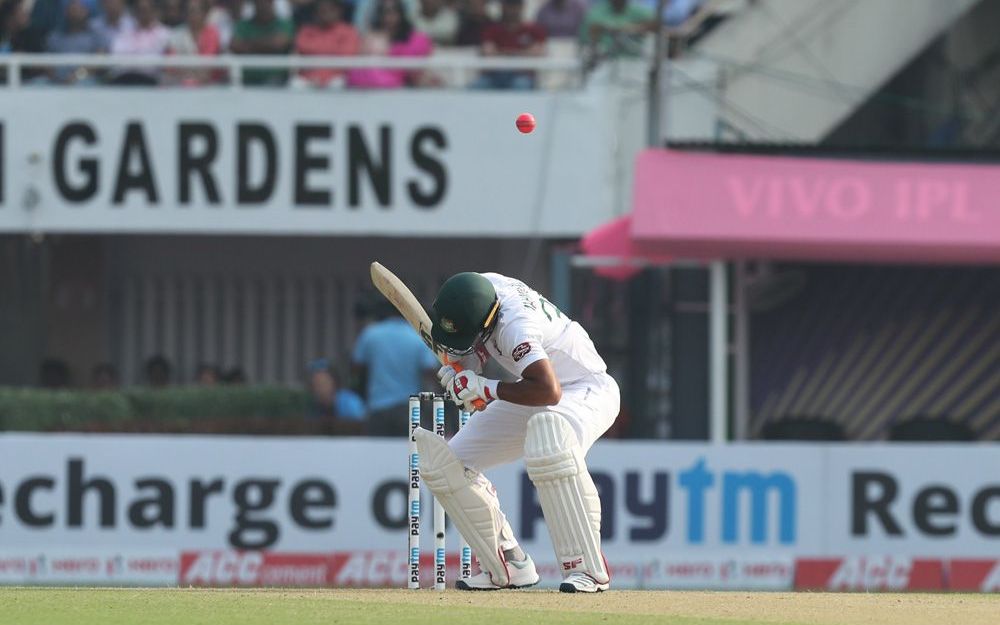Bangladesh's lack of concussion planning reminder for other teams to have one

Concussion in sports is a real problem and it is a good sign that sports concussions are now taken seriously. Carrying on with visible problems related to brain injury is no longer considered a “macho” behaviour, with ICC rightfully introducing “concussion substitute rule”. The talks have changed.
When Marnus Labuschagne came out to bat as a replacement for Steve Smith in Ashes series back in August, he was in for a movement that was already set in motion in Australian domestic cricket for a long time. Cricket, our lovely cricket, had discounted the importance of truism in the sport for the longest time and someone leaving the ground after taking a blow was considered everything that cricket really wasn’t. Cricket was a sport loved and adored by many yet it salutes artistry and not machismo. It revers the heroism and not blatant showmanship.
When Rashid Khan took a blow on his head during the World Cup and decided to carry on, Twitter went beserk to salute his bravery when it was anything but stupid in Rashid’s part. It needed a trigger point and the ICC’s decision to establish concussion substitute came as one. As an ode to the planning, Cricket Australia even picked Cameron Bancroft for the Pakistan series even though Bancroft’s returns in the Shield was anything but inspiring.
However, here we are - in a historic Test series, with the pink ball taking precedence, witnessing a team in absolute shambles as far as concussion planning was concerned. Saif Hassan and Mosaddek Hossain were ruled out much before the Test even commenced and with two batsmen being out, it doesn’t require rocket science to figure out they had to fly someone in order to prepare for the worst.
There had been a total of three batsmen being substituted in a Test match before this and two - Darren Bravo and Dean Elgar - had been against India. Before the list moved to four against India today, Bangladesh, ideally, should have a batsman in their ranks as Cricket Australia did for the home series against Pakistan. A flight from Dhaka to Kolkata take only 30 minutes - lot lesser than a chai break one takes in office. Common sense, anyone?
The argument that “Bangladesh didn’t have any time” also falls flat on the face as Saif's injury was confirmed on November 20 and Mosaddek left the Test team to be with his ailing family member on November 11 - much before the Indore Test even started. There was literally no logic behind Bangladesh not naming a replacement despite clearly knowing that India possesses a pace battery that is potent enough to bowl bouncers for fun; thus the probability of concussions happening is more than ever.
In recent years, scientists have started to begin to understand much more about concussions than they had ever done with one of the finding being the dangers of a “second impact”. The second concussion comes to sportsmen who put them under pressure after suffering an initial concussion. It was the bottom-line why the ICC’s guidelines now suggest that a typical recovery process takes about seven days to complete.
I read somewhere on the Internet about a rule that rugby follows comes to my head. In rugby, if a player is in a shape bad enough for the physio to go onto the field twice, it is mandatory for the player to go off the field and take a concussion test. And if the concussion is detected, that player can’t come back for at least a week.
Of course, cricket has come a long way as far as accepting the concussion as a real problem that needs to be addressed but with that teams need to be responsible as well in having a plan B in place. A dressing room that has the likes of Russell Domingo, Daniel Vettori, and Charl Langveldt is allowing to play a Test match without a substitute batsman and that’s where the lesson for the teams lie. Cricket Australia has laid down a marker and it is time others start planning for it.
